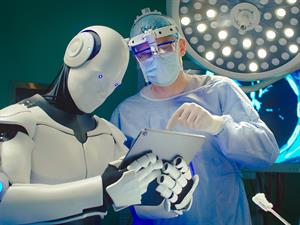
Technology: IT, Robotics, and Engineering Sciences
Technology plays a vital role in shaping our modern world. From the way we communicate to how we work and travel, fields like information technology (IT), robotics, and engineering sciences are at the center of innovation and progress.
Information Technology (IT) focuses on the storage, processing, and exchange of data. It enables global communication, remote work, and access to a vast amount of online information. Many businesses rely on cloud computing, data security systems, and artificial intelligence (AI) to increase efficiency. In everyday life, IT helps us navigate cities, shop online, and manage our finances through smart devices and mobile applications.
Robotics combines engineering, mechanics, and computing to design and operate robots. These machines can perform tasks that are repetitive, precise, or even dangerous for humans. In medicine, robotic arms assist surgeons during delicate procedures. In industries, robots assemble products faster and more accurately than humans. Advanced robots, powered by AI, can even learn from their environment and make independent decisions.
Engineering sciences involve designing, building, and improving physical systems — from infrastructure to energy solutions. Civil, mechanical, and electrical engineers work on projects that shape our daily lives: bridges, vehicles, energy-efficient buildings, and clean energy technologies. Innovation in engineering is crucial to solving global challenges such as climate change, urbanization, and sustainable development.
As technology continues to evolve, professionals in these fields must adapt and learn new skills. For students, developing digital literacy and problem-solving abilities is essential for future careers. Understanding how IT, robotics, and engineering intersect allows us to better prepare for the rapidly changing world.
Key Vocabulary (with definitions)
Data security — Protection of information from unauthorized access or theft
Artificial intelligence — Machines that can simulate human thinking and learning
Delicate procedures — Tasks that require precision and care, often in medicine
Infrastructure — Basic systems and structures like roads, bridges, or power lines
Sustainable development — Growth that meets current needs without harming future generations
Digital literacy — The ability to understand and use digital tools effectively
Urbanization — The increase in people living in cities and towns
Efficiency — Doing something well without wasting time or resources
Discussion Questions
1. How is artificial intelligence changing traditional jobs in IT, robotics, or engineering?
2. In what ways can engineering contribute to a more sustainable future?
3. Do you think robots should be allowed to make decisions in hospitals or factories? Why or why not?
4. Should digital literacy be considered as important as reading and writing in schools?
5. What are some ethical challenges that arise from the use of advanced technology?
1. How is artificial intelligence changing traditional jobs in IT, robotics, or engineering?
2. In what ways can engineering contribute to a more sustainable future?
3. Do you think robots should be allowed to make decisions in hospitals or factories? Why or why not?
4. Should digital literacy be considered as important as reading and writing in schools?
5. What are some ethical challenges that arise from the use of advanced technology?